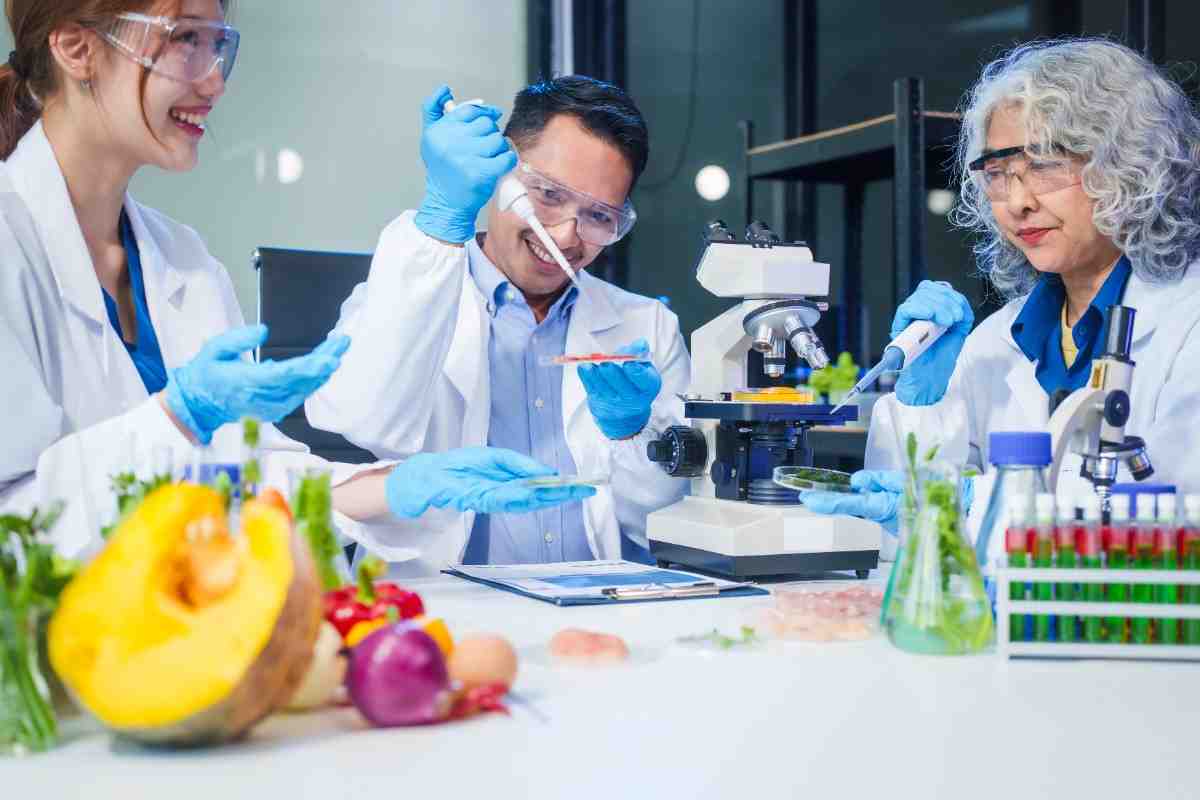Last Updated on December 16, 2025 by Admin
- What is HACCP Principles
- List of 7 Principle of HACCP
- Why are the HACCP Principles Important?
- Create the best HACCP system now!
In layman’s terms, HACCP is defined to be a management system where food safety gets addressed through proper analysis and control of the chemical biological, and physical hazards from the product, procurement and handling of raw materials to the manufacturing, distribution and final consumption of the finished item.
The primary goal of the HACCP is to reduce and prevent any form of a food safety hazard. So, getting your question answered on what is HACCP is really important from the get-go.
HACCP is solely based on scientific principles revolving around food processing and production unit. From us at FICSI, you will receive HACCP training if you want to be a part of the food processing, meat, and poultry processing units. If you want to be a well-trained food service operator, going through our courses will be a great call.
We even have some HACCP workshops in store, which are accredited by some international alliances. But before any of that, let’s learn about the 7 principles of HACCP, which every food processor needs to follow.
What is HACCP Principles
HACCP refers to Hazard Analysis Critical Control Point. It is a management system that addresses food safety through analysis and control of chemical, biological and physical hazards. The hazards considered under this system start from raw material production, handling, manufacturing, distribution and consumption. HACCP is based on the use of certain scientific principles of food processing and production. It includes seven crucial principles. The first two principles among these are the foundation steps and the remaining five are the application steps. The application steps provide the structure to conduct the workings of the HACCP plan in the processing plant.
List of 7 Principle of HACCP
1. Conduct a hazard analysis:
This principle will involve listing out the steps in the process and then identifying where the major hazards are likely to take place. The current HACCP team will focus on hazards that can easily be eliminated, prevented or controlled by using a HACCP plan. The justification for adding that hazard will then get reported and all the control measures will be identified.
2. Focusing on the CCPs or the Critical Control Points:
CCP is a step or a procedure where the control can be applied and all kinds of food hazards can be prevented, reduced to acceptable levels or completely eliminated.
Here, the HACCP team will be using the help of the CCP decision tree for identifying major control points within the process. This point might control one food safety hazard. In some instances, more than one CCP is used for controlling a single hazard. The number of CCP depends on processing steps and the control used for assuring food safety.
3. Creating some critical limits:
A critical limit or CL is a maximum or the minimum value in which the physical, chemical, or biological parameter needs to be controlled. It forms a crucial part of HACCP training and is used for preventing, eliminating, or reducing to acceptance level the occurrence of the hazard.
This form of critical limit is mainly a form of measure like water activity, time, pH, weight, temperature, or even other forms of measures that solely depends on regulatory standards or the scientific literature.
4. Working on the monitoring procedures:
We have always worked with the best HACCP team in FICSI to learn about the principles in detail. The HACCP team, in question, will be the one to describe the monitoring procedure for measuring crucial limits at every critical controlling point.
Monitoring the said procedures should be used for describing how the measurement must be taken and the time when it needs to be taken. It will also let you know who is responsible for the said measurement and how frequently the measurement must be taken during the said production line.
5. Focusing on some of the corrective actions:
Corrective actions are targeted to be the procedures that are solely followed when a deviation in the critical limit takes place. Here, the HACCP team will be the one to identify the steps that are to be taken to prevent any form of potentially hazardous food from entering the food chain. It will further take the steps, which are used for correcting the process.
It will mainly include identifying the issues and the steps used for assuring that the problem won’t take place for the second time at all.
6. Now time for establishing verification procedures:
Apart from monitoring, there are some other activities that you will come to learn from us at FICSI once you have enrolled for the HACCP course and are willing to learn more about HACCP principles in detail. Other than monitoring, these extra activities will determine the current validity of the HACCP plan along with the system, which is operating as per the plan in question.
The current HACCP team will be the one to identify the activities like auditing CCPs, prior shipment review, record review, instrument calibration, and also product testing as a major part of verification activities around here.
7. Focusing on establishing record-keeping and following the primary documentation processes:
One of the major components of the HACCP plan is mainly to record information, which can further be used to prove that the food was produced in a safe manner. The records will also need to include the information on product description, HACCP Team, hazard analysis, and flow diagrams.
Apart from these points, you should also include the CCPs identified, monitoring systems, critical limits, recordkeeping procedures, corrective steps or actions, and verification processes within your documentation for keeping records.
Also read: 5S Principles for Food Industry Efficiency & Safety
Why are the HACCP Principles Important?
HACCP is an extremely crucial process to prevent foodborne illnesses and allergic reactions. HACCP ensures compliance with food hygiene measures to avoid these diseases and allergies. It ensures to minimize hazards caused due to poor hygiene and cross-contamination of food during production. HACCP is a crucial way to keep the staff in food businesses safe and also the customers. It helps businesses comply with the official health and safety regulations and guidance. Following HACCP principles is a legal requirement of food businesses to maintain food safety and hazard control systems. Any business breaching this law can face serious punishment and consequences.
Create the best HACCP system now!
The principles mentioned above and the thorough details will clearly help you to know ways to implement a HACCP system. For some more details on that, our team from FICSI is always there to the rescue.
- In case you are planning to add a HACCP system, it is vital to implement some of the prerequisite programs. These two can act together to ensure that the product never gets contaminated.
- These prerequisite programs will be placed to ensure that the surrounding environment remains clean from the first stage.
- These programs are further used for controlling hazards within the environment.
- Ensuring that you are working in a hygienic environment is always the first step to preventing product contamination from taking place.
There are so many other steps involved around here when it comes to the HACCP plan and program. In order to learn more about this program and the 7 principles, you may come and join any one of our programs right now. We have limited seats. So, make sure to book your seats right away if you don’t want to miss out on the opportunity.
Visit FICSI for more details.
Read More – What is HACCP and its importance for food safety?













